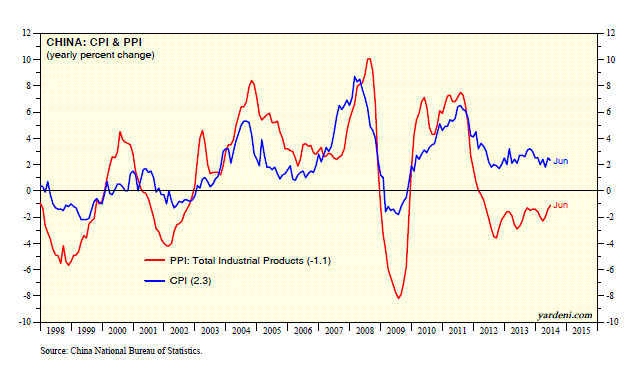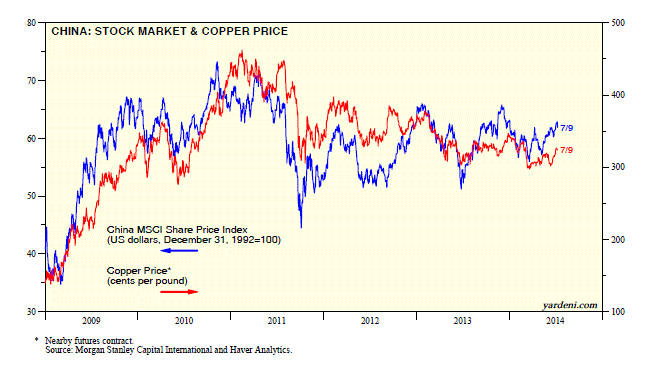
The PBOC certainly has contributed to the supply of global liquidity since the Great Financial Crisis. So have the government’s various spending programs. The problem is that monetary and fiscal stimulus has stimulated too much excess capacity. The result has been deflation in China’s various PPI measures. Indeed, the overall PPI fell 1.1% y/y during June, the 28th consecutive monthly decline.
The PPI is falling especially fast among heavy industries as follows: Coal (-10.8%), Ferrous Metals (-6.5), Chemicals (-4.9), All Heavy Industries (-2.6), and Nonferrous Metals (-2.4). With so much PPI deflation weighing on profits for so long, it's no wonder that the MSCI China stock price index (in dollars) has been a global underperformer for the past few years.
Today's Morning Briefing: The Liquidity Story. (1) Frustrated central bankers. (2) Not very stimulating. (3) Liquidity floating lots of boats other than economy. (4) Pumping it up. (5) US short-term business borrowing well exceeds inventory financing needs. (6) ECB to provide 4-year loans to banks to make more loans, or whatever. (7) Eurozone banks still shedding loans. (8) BOJ also lending to banks that are lending to the government. (9) Lots of monetary and fiscal stimulus in China creates excess capacity and PPI deflation.

